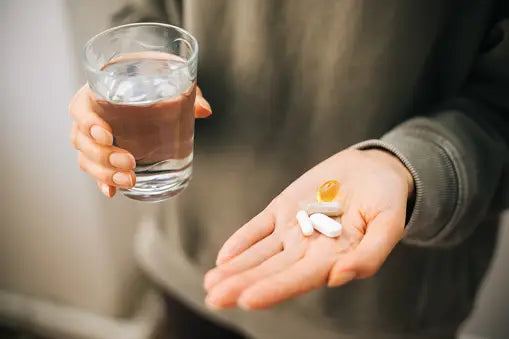

Caffeine Increases Post Exercise Metabolism
Table of Contents
Caffeine Increases Post Exercise Metabolism
by: Robbie Durand
Caffeine is most often consumed in coffee, tea, cola, or in infusions such as yerba maté. As a stimulant, it reduces drowsiness and increases alertness.Caffeine has long been part of the pre-workout regimen for all gym advocates and professional athletes. Caffeine is well-known as a central nervous system stimulant. Studies have shown that caffeine can help an athlete perform better in a variety of different activities. It has been shown to be a powerful ergogenic aid that is beneficial in athletic performance and training. Caffeine is widely utilized by strength and power athletes and the research generally supports this use. Indeed, it appears that maximal strength, repetition strength, and isokinetic strength in resistance-training might all be improved by caffeine supplementation to some degree, depending on dosage. Caffeine has been shown to increase speed and power output, improve the length an athlete can train, and assist the athlete in resisting fatigue.

Caffeine has also been proven to stimulate the brain, which contributes to an athlete’s clearer thinking and ability to concentrate harder on the task at hand. Interval Training to Get Ripped. Researchers examined if combining exercise and caffeine supplementation was more effective for promoting acute energy deficits and manipulations to substrate metabolism than exercise alone. Fourteen recreationally-active participants completed a resting control trial, a placebo exercise trial, and a caffeine exercise trial, in which the subjects were given 2 x 3 mg/kg/bw of caffeine 90 min before and 30 min after exercise) in a randomized, double-blinded design. Trials were 4 hours in duration with 1 hour of rest, 1 hour of cycling at ~65 % power at VO2max or rest, and a 2 hour recovery. Two hours after exercise, participants were offered an ad libitum test meal where energy and macronutrient intake were recorded. At the end of the study, exercise plus caffeine resulted in significantly greater energy expenditure and fat oxidation compared to exercise alone and Control group. Consequently, exercise+caffeine created a greater energy deficit. Caffeine also led to exercise being perceived as less difficult and more enjoyable. Combining caffeine with exercise creates a greater energy deficit and the implications of this protocol for weight loss or maintenance over longer time periods in overweight/obese populations require further investigation. A new study was just published in the International Journal of Sport Nutrition and Exercise Metabolism which will make athletes run for their pre-workout caffeine drink.

Caffeine is an ergogenic aid widely used prior to and during prolonged exercise. Due to its prolonged biological half-life caffeine effects could remain after exercise. Researchers aimed to investigate the metabolic, respiratory and cardiovascular post-exercise responses to pre-exercise graded caffeine ingestion. Twelve aerobically trained subjects cycled for 60-min at 75% VO2max after ingesting placebo (0 mg of caffeine per kg of body weight) or 0.5, 1.5, 3.0 and 4.5 mg · kg-1 on five occasions. During the 3 hours post-exercise, heart rate, blood pressure, glucose, lactate and fatty acids were analyzed. At the end of the study, 4.5 mg · kg-1 of caffeine raised post-exercise energy expenditure 15 % above placebo. The researchers found that both ventilation during the 3-hour post-exercise period were greater than placebo in the highest caffeine condition (4.5mg per kg of bodyweight). Subjects inspired 9.2L/min when in the highest caffeine condition but only 7.8 L/min in the placebo condition. Similarly, subjects inspired 0.67 L/breath when in the highest caffeine condition but only 0.56 L/breath in the placebo condition. The increases in ventilation were strongly correlated with the increase in resting energy expenditure. In summary, pre-exercise ingestion of ergogenic caffeine doses do not alter post-exercise cardiovascular responses. However, ingestion of 4.5 mg · kg-1 of caffeine raises 3 h post-exercise energy expenditure (i.e., 31 kcal) likely through increased energy cost of ventilation. So this study in sum showed that the higher rise in breathing rate post exercise caused the increases in post-exercise energy expenditure.
Ingestion of a moderately high caffeine dose before exercise increases post-exercise energy expenditure, by Fernández-Elías, Del Coso, Hamouti, Ortega, Muñoz, Muñoz-Guerra and Mora-Rodríguez, in International Journal of Sport Nutrition and Exercise Metabolism (2015)

















